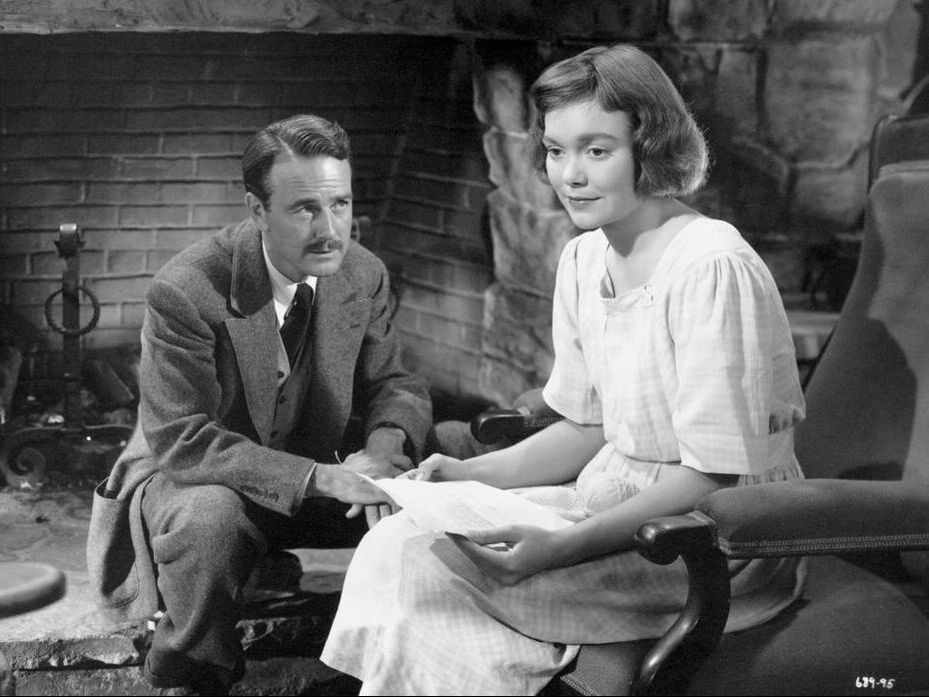|
A deaf-mute woman is raped and falls pregnant, leading
her family and the local doctor to become embroiled in scandal. DRAMA
|
Johnny Belinda (1948)Directed by Jean Negulesco
Written by Irma von Cube and Allen Vincent Starring Jane Wyman, Lew Ayres, Charles Bickford, Agnes Moorehead, Stephen McNally, Jan Sterling Based on the stage play by Elmer Harris Oscar Wins - Best Actress (Jane Wyman) Oscar Nominations - Best Picture, Best Actor (Lew Ayres), Best Supporting Actor (Charles Bickford), Best Supporting Actress (Agnes Moorehead), Best Director, Best Adapted Screenplay, Best Cinematography, Best Art Direction, Best Film Editing, Best Original Score (Max Steiner), Best Sound |
Johnny Belinda is known mainly these days as the first mainstream Hollywood film to openly deal with the subject of rape. Films between 1930 and 1960 were remarkably clean cut. Producers and politicians didn't think the American people could handle films with taboo subject matter. The fact that this film even tackled rape is insane, but the smart, delicate way they addressed the fallout is astonishing. This film is surprisingly modern, and thanks to its impressive performances and realistic characters, it holds up over seven decades later.
Belinda (Wyman) is a deaf-mute woman who works on her family's farm and keeps to herself. Local doctor Robert Richardson (Ayres) takes a liking to Belinda and teaches her sign language. The two bond and develop a friendship, much to the town's chagrin, most of whom treat Belinda like she's a brainless idiot. One day, Belinda is raped by a local rogue named Locky McCormick (McNally), and becomes pregnant. The town all think the doctor is responsible, and they shun him. Belinda's family rallies behind her and supports her in her darkest moment, something that's pretty progressive for 1948, a time when women were expected to be submissive housewives and never think for themselves. But Belinda is a strong protagonist who never lets her disability or her unwanted pregnancy keep her from living life on her own terms. Johnny Belinda is a film I had never heard of prior to looking into 1948's Best Picture nominees. It's an infuriating watch at times, but the ending makes it all worth it. It touches on themes such as individual liberties, parental fitness, and the fine line between friendship and romance. It's one of the most relatable films of the 40's, with its real characters and dark but believable subject matter. |
